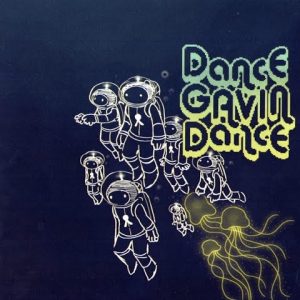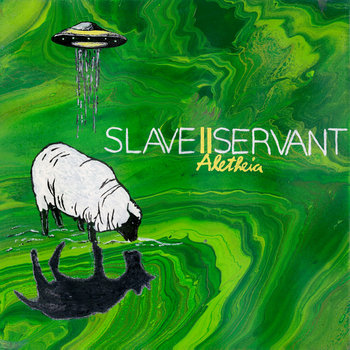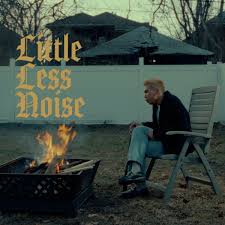Killer Cuts: Real Friends: “There’s Nothing Worse Than Too Late”
Real Friends’s new lead vocalist adds his own flavor to an ensemble of longtime friends who are dedicated to their craft, using every release as a stepping stone to achieve a great album.
April 10, 2023
Seeking solitude in life is a really tricky thing. Author and poet, Charles Bukowski reflects on many instances of sought solitude in his short prose, “Oh Yes,” in which he despondently writes an internal confession of regret. Subtly admonishing himself for his selfishness and indirectly accepting responsibility, Bukowski highlights his most vulnerable state, relative and true for most. Much like beautiful art, beauty follows beauty, and transcends time. Recently, Chicago pop-punk band “Real Friends” decided the poem needed expansion and released their first full-length album with new (Former Youth Fountain) vocalist Cody Mauro.
“There’s Nothing Worse Than Too Late” is the fourth album from Tinley Park, pop-punk natives Real Friends, marking multiple creative changes for the band and beginning a new era with a new vocalist.
Released on Feb. 24, the album was highly anticipated. One of the first notable changes is Mauro’s more sensually-aggressive performance on the album. In comparison to former Vocalist, Dan Lambton (who left on good terms to pursue a Twitch career and focus on mental health), Mauro’s voice is smoother, cleaner, bringing his own flare to the tracks. As cathartic and oftentimes melancholic the lyrical material may be, Mauro adds his own flavor to an ensemble of longtime friends who are so dedicated to their craft. The band’s music only continues to get better, using every release as a stepping stone to each subsequent album.
“Tell Me You’re Sorry” was the first single to be released after Mauro’s introductory EP, “Torn in Two,” with the band on Feb. 11, 2022. The track is a sullen, energetic demand for an apology for being hurt by someone else. While cathartic, the track’s embedded melodies entice the listener while the energy from drummer Brian Blake’s rhythms act as a powerful vehicle for progression into the silent parts where he is not even heard. Bassist and main lyricist Kyle Fasel’s lyrics perfectly cater to Mauro’s vocal ability, seamlessly transitioning back and forth from the emotional to the angry.
“Always Lose” is the perfect blend of aggression and melody. Fasel’s focus on the track highlights an individual’s social instinct to trust. The lyrics explore looking forward to a new relationship and sharing a part of themselves, wholly and genuinely putting their genuine selves forward only to end up short. Whether in romantic terms or platonic terms, Fasel and Mauro’s paired talents shine through in both the chorus and first verse, “Feels like I’m crossing a line when I’m crossing my fingers/Like I’m walking on thorns, like I can’t pull out the splinters/I’ve lost my will to chase/And I’ve lost track of all the names.” These lyrics imply not only the amount of times one’s character has been utterly rejected, but denote instances of being singled out on the basis of exhibiting genuine character.
“Six Feet” is a wonderfully composed track in which the lyrical material contrasts the music. The second single of the album, initially a happy track, uses Fasel’s lyrics to form an expansion of Bukowski’s poem. Mauro sings Fasel’s opening lyrics: “I don’t wanna have to be six feet underground to feel loved/I don’t wanna have to be a memory to feel like I’m someone you thought of.” While Fasel’s lyrics could be understood as cathartic, the song is a melodic reminder according to Fasel and the band who posted their thoughts in a comment on the song’s video on Youtube.
“We released an important one today,” the comment reads. “‘Six Feet’ is a song about longing to be loved and appreciated while you’re still here. I always see and hear good things said about people after something bad happens to them or after they pass away. I think we all need reminders to appreciate our loved ones while they are alive, healthy and right in front of us. This song is that reminder to ourselves and our fans.”
“Strangers” is another song that mirrors the composition of “Six Feet,” while lyrically distinguishing itself from the track. Initially, a similar up-beat melody is used to contrast the heavy lyrical material, but differentiates its identity in Mauro’s vocal performance of the lyrics. Using Fasel’s material, Mauro internalizes Fasel’s opinion on the modern take of the relationship, fixated on superficialities at the sacrifice of depth and genuineness. Mauro’s vocals are manipulated by an attitude and slyness. Not only does he sing the lyrics with on-key pitch, but they impose a call to action on the listener to strive for real, genuine relationships.
All in all, while the concept of the album works, the listener is left with a lot to think about. While Mauro exhibits a great emotional vocal spectrum, relationships are difficult and often tell us more about ourselves rather than functioning alone. We are social creatures. Whether we lean more towards Bukowski on the spectrum, or are more attuned to our feelings and relate more to the lyrics of Real Friends, the old saying may need some amendment: it’s better to be in search of good company, than in search of solitude.
5/5



















